News + Media
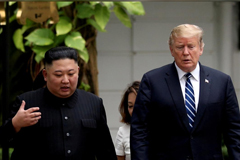 |
In the NewsJune 28, 2019Trump offers North Korea's Kim weekend meeting in demilitarized zoneRoberta Rampton, Joyce LeeReuters“The fundamental problem - no working-level meetings and no basic change in at least the US negotiating position - means that any meeting right now is just pointless theater,” tweeted Vipin Narang, an MIT professor of political science. |
 |
News ReleaseJune 27, 2019M Taylor Fravel named director of the MIT Security Studies ProgramM Taylor Fravel, Arthur and Ruth Sloan Professor of Political Science, has been named director of the MIT Security Studies Program. Barry Posen, Ford International Professor of Political Science and director of SSP since 2006, announced the leadership transition. |
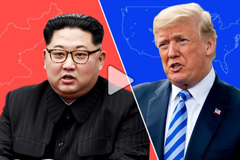 |
In the NewsJune 27, 2019North Korea denies reports of behind-the-scenes talks with US in sharp rebuttal to South Korea's MoonJoshua BerlingerCNNVipin Narang said it appears unlikely a summit is forthcoming. “My expectations are low, and I think going forward it's best to keep them there” he said, adding that it's more likely that developments will come from meetings between senior officials. |
 |
In the NewsJune 25, 2019Is Boston a cloud security hub?Tiziana Dearing and Jamie BolognaWBURBoston was chosen by Amazin to host the first conference on cloud security. But what is cloud security and why is Boston a leader in it? Joel Brenner weighs in. |
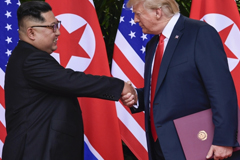 |
In the NewsJune 25, 2019Trump and Kim exchange letters, but will they meet at DMZ?William GalloVOA News“This is like the buildup to The Apprentice finale,” tweeted Vipin Narang. “A lot of intrigue and drama, but that was ultimately an extreme letdown. We actually play right into Trump’s hand by tuning in and hanging on to every word. Someone let us know how this ends.” |
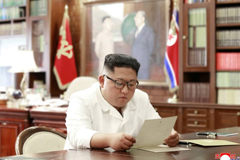 |
In the NewsJune 23, 2019Kim Jong Un receives letter from Trump, saying he will 'seriously contemplate' its 'interesting content'Jesse JohnsonThe Japan Times“Did Trump indicate a willingness to moderate the US negotiating position (good)? Or did Trump unknowingly assent to something Kim said about doing so in his own letter and now Kim thinks Trump is on board (bad)?” Vipin Narang, a North Korea expert and professor of international relations at MIT, wrote on Twitter. |
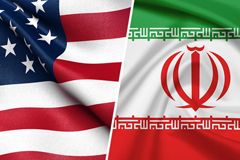 |
In the NewsJune 21, 2019What's next after Iran strike called off?Jeremy HobsonWBUR Here & NowPresident Trump confirmed Friday he rescinded a military operation to strike Iran that was underway. Host Jeremy Hobson talks with Here & Now security analyst Jim Walsh, with MIT's Security Studies Program. |
 |
News@E40June 20, 2019Fravel testifies before US-China Economic and Security Review CommissionTaylor Fravel (@fravel) testified before the US-China Economic and Security Review Commission, discussing what China means by the term “world-class military.” Testimony and video available here. |
 |
In the NewsJune 19, 2019Is the US inching closer to war with Iran?Fox News RadioTensions between the US and Iran continue to escalate. Is it nothing more than saber-rattling, or is the threat of war real? Former CIA station chief Daniel Hoffman and MIT Securities Studies Program Senior Research Associate Dr Jim Walsh explain the increase in pressure. |
 |
In the NewsJune 19, 2019What would a US grand strategy of restraint look like?Elliot WaldmanWorld Politics Review: Trend LinesBarry Posen is featured on World Politics Review’s podcast to discuss his idea of a US grand strategy based on restraint and how it would look when put into practice. |



